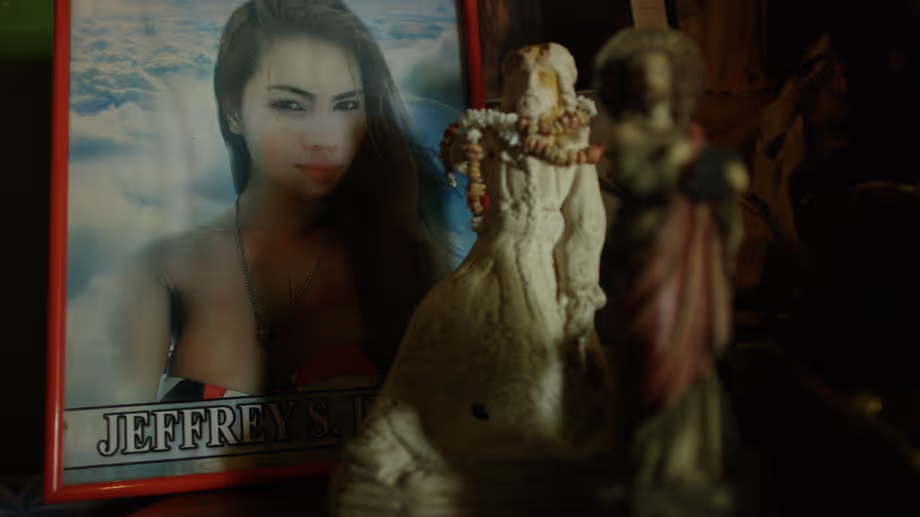Call Her Ganda: Delve Deeper Reading List Adult Fiction
Adult Fiction

Eugenides, Jeffrey. Middlesex: A Novel. Picador, 2002.
"I was born twice: first, as a baby girl, on a remarkably smogless Detroit day of January 1960; and then again, as a teenage boy, in an emergency room near Petoskey, Michigan, in August of 1974. . ." So begins the breathtaking story of Calliope Stephanides and three generations of the Greek-American Stephanides family who travel from a tiny village overlooking Mount Olympus in Asia Minor to Prohibition-era Detroit, witnessing its glory days as the Motor City, and the race riots of l967, before they move out to the tree-lined streets of suburban Grosse Pointe, Michigan. To understand why Calliope is not like other girls, she has to uncover a guilty family secret and the astonishing genetic history that turns Callie into Cal, one of the most audacious and wondrous narrators in contemporary fiction.
Apostol, Gina. Insurrecto. Soho Press, 2018.
Two women, a Filipino translator and an American filmmaker, go on a road trip in Duterte’s Philippines, collaborating and clashing in the writing of a film script about a massacre during the Philippine-American War. Chiara is working on a film about an incident in Balangiga, Samar, in 1901, when Filipino revolutionaries attacked an American garrison, and in retaliation American soldiers created “a howling wilderness” of the surrounding countryside. Magsalin reads Chiara’s film script and writes her own version. Insurrectocontains within its dramatic action two rival scripts from the filmmaker and the translator—one about a white photographer, the other about a Filipino schoolteacher. Within the spiraling voices and narrative layers of Insurrectoare stories of women—artists, lovers, revolutionaries, daughters—finding their way to their own truths and histories.
Syjuco, Miguel.Ilustrado.Farrar, Straus and Giroux, 2010.
It begins with a body. On a clear day in winter, the battered corpse of Crispin Salvador is pulled from the Hudson River—taken from the world is the controversial lion of Philippine literature. Gone, too, is the only manuscript of his final book, a work meant to rescue him from obscurity by exposing the crimes of the Filipino ruling families. Miguel, his student and only remaining friend, sets out for Manila to investigate. To understand the death, Miguel scours the life, piecing together Salvador's story through his poetry, interviews, novels, polemics, and memoirs. The result is a rich and dramatic family saga of four generations, tracing 150 years of Philippine history forged under the Spanish, the Americans, and the Filipinos themselves. Finally, we are surprised to learn that this story belongs to young Miguel as much as to his lost mentor, and we are treated to an unhindered view of a society caught between reckless decay and hopeful progress.
Linmark, R. Zamora. Leche. Coffee House Press, 2011.
After thirteen years of living in the U.S., Vince returns to his birthplace, the Philippines. As he ventures into the heat and chaos of the city, he encounters a motley cast of characters, including a renegade nun, a political film director, arrogant hustlers, and the country’s spotlight-driven First Daughter. Haunted by his childhood memories and a troubled family history, Vince unravels the turmoil, beauty, and despair of a life caught between a fractured past and a precarious future.
José, F. Sionil. The Samsons: The Pretenders and Mass. Modern Library, 2000.
With these two passionate, vividly realistic novels, The Pretenders and Mass, F. Sionil José concludes his epochal Rosales Saga. The five volumes span much of the turbulent modern history of the Philippines, a beautiful and embattled nation once occupied by the Spanish, overrun by the Japanese, and dominated by the United States. The portraits painted in The Samsons, and in the previously published Modern Library paperback editions of Dusk and Don Vicente(containing Tree and My Brother, My Executioner), are vivid renderings of one family from the village of Rosales who contend with the forces of oppression and human nature.
